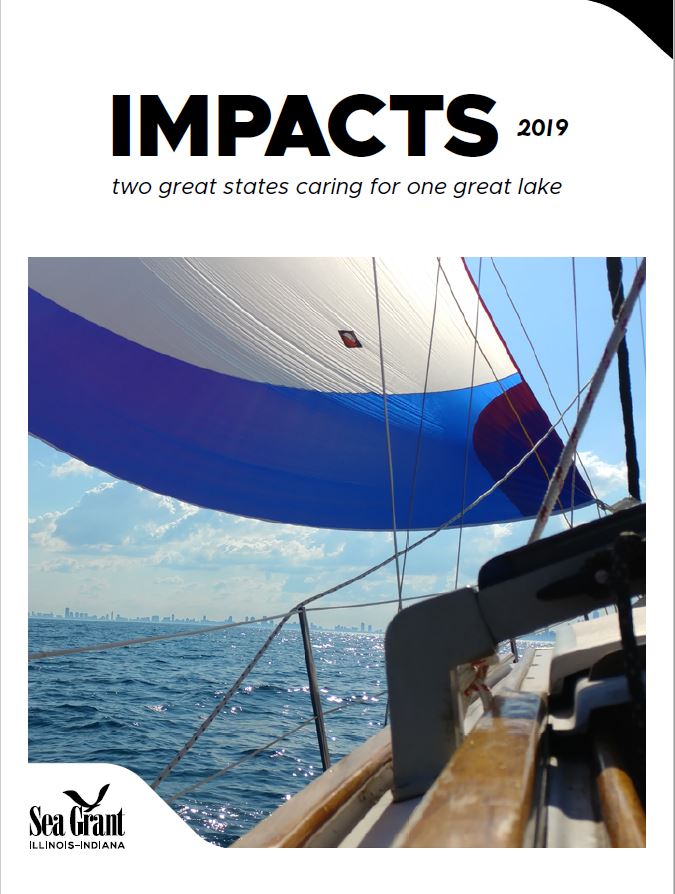
File Size: 18.00 MB
This publication brings together program impacts from the 2018-2019 Sea Grant year.

This publication brings together program impacts from the 2018-2019 Sea Grant year.
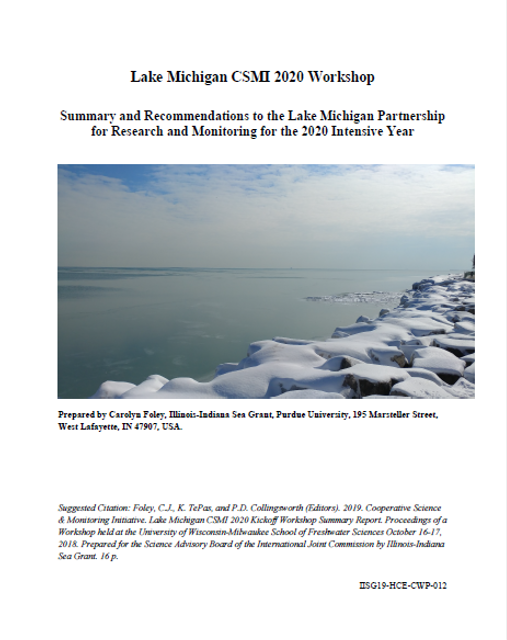
On October 16 and 17, 2018, nearly 60 scientists and managers met at a workshop in Milwaukee, WI to discuss research needs for Lake Michigan. The workshop, sponsored by the International Joint Commission through its Science Advisory Board Research Coordination Committee and organized by Illinois-Indiana Sea Grant, was part of the Cooperative Science Monitoring Initiative (CSMI). The main purpose of the meeting was to kick off discussions about research priorities to be considered during the 2020 CSMI intensive field year on Lake Michigan. This document summarizes the meeting proceedings.
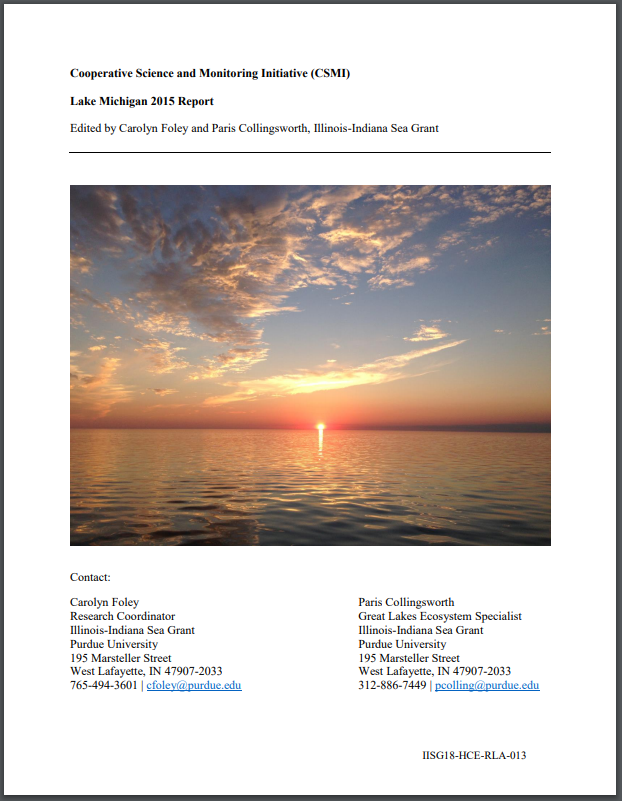
The role of the Cooperative Science and Monitoring Initiative (CSMI) is to provide enhanced monitoring and research activities that provide relevant information to address the science priorities of the Lake Partnerships (established under the Lakewide Management Annex of the 2012 Great Lakes Water Quality Agreement) across the Laurentian Great Lakes. The Lake Michigan Partnership, a collaborative team of natural resource managers led by the U.S. Environmental Protection Agency with participation from federal, state, tribal, and local governments or agencies, uses the information collected through CSMI to help develop long term ecosystem-based management strategies for protecting and restoring Lake Michigan’s water quality. On a practical level, CSMI is an intensive effort to collect information on the health of each lake, rotating to one Great Lake each year. In 2015, it was Lake Michigan’s turn. This is an executive summary of the 2015 research results and the associated white paper containing more specific information.
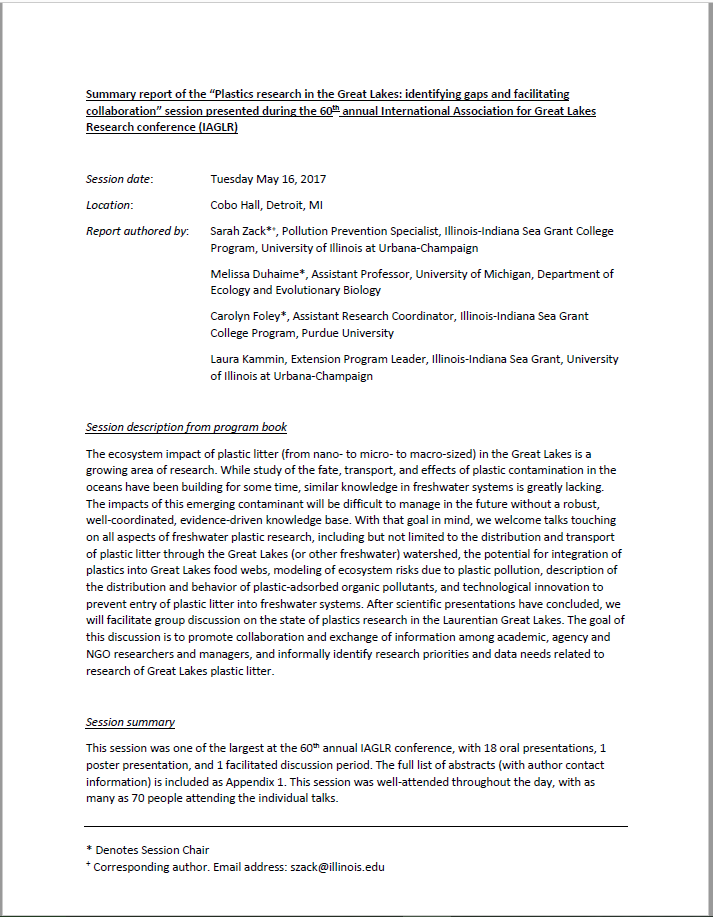
This session was one of the largest at the 60th annual IAGLR conference, with 18 oral presentations, 1 poster presentation, and 1 facilitated discussion period. The full list of abstracts (with author contact information) is included as Appendix 1. This session was well-attended throughout the day, with as many as 70 people attending the individual talks.
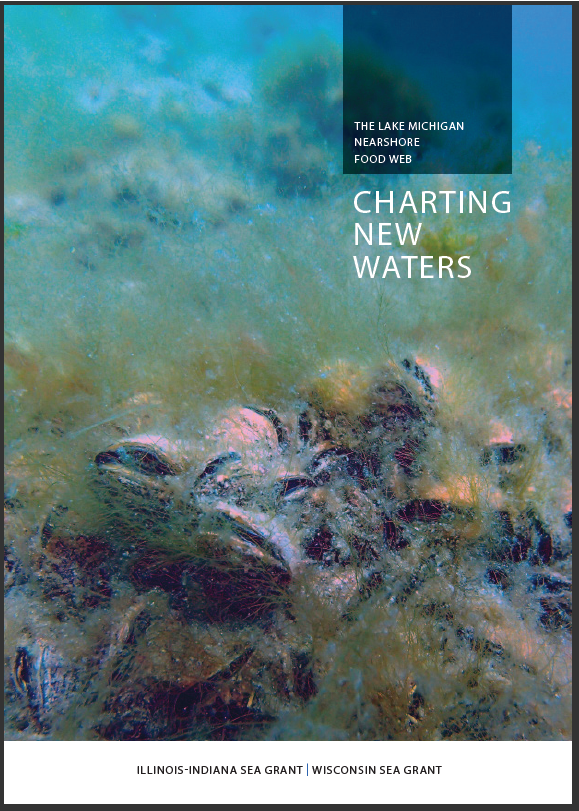
What are the most critical concerns facing Lake Michigan? The Great Lakes Regional Research and Information Network (GLRRIN) Lake Michigan team set out to answer this question by bringing together more than 50 government and academic researchers over several meetings to share what’s known, what isn’t, and what information would be most valuable to inform resource managers and others interested in the health of the lake.
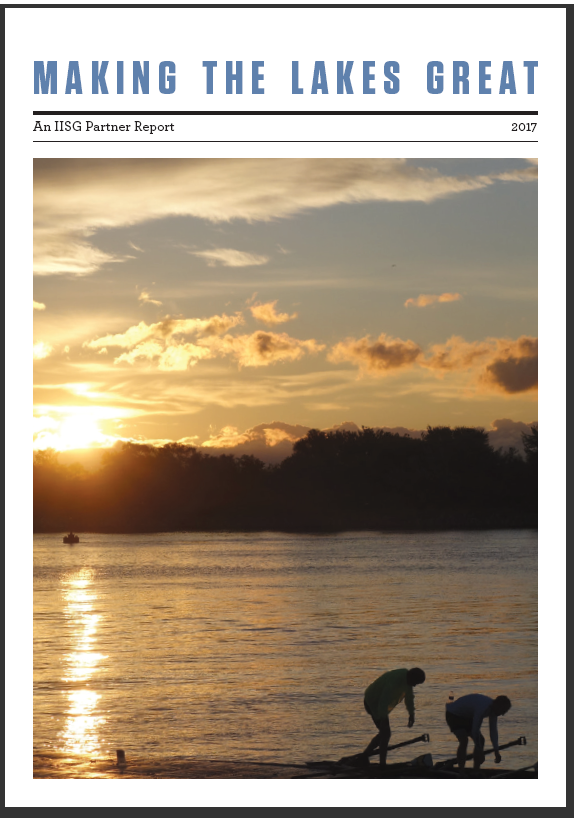
An overview pamphlet on efforts to improve the Great Lakes through pollution prevention, monitoring, cleanups, and education.
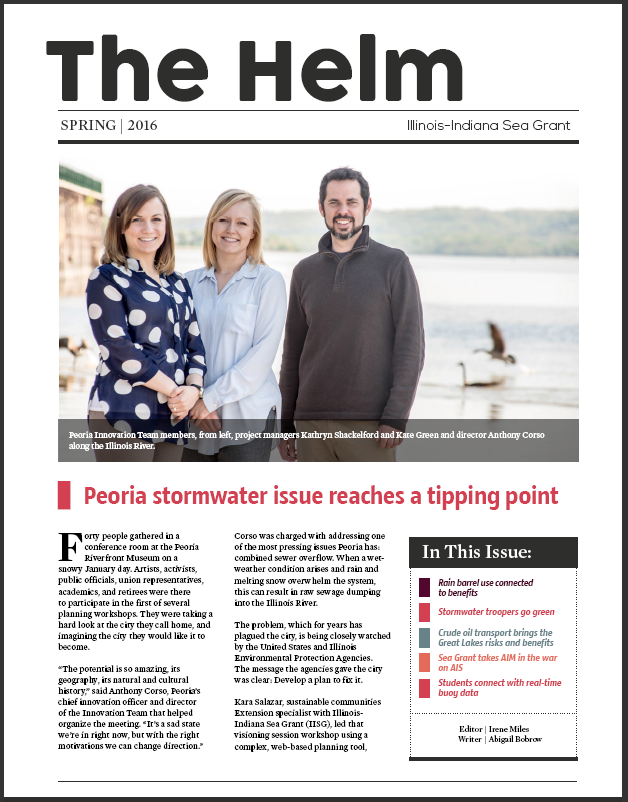
Feature Headlines
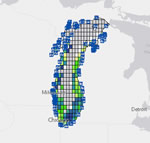
This website provides anglers on Lake Michigan with information about catch rates of rainbow trout, lake trout, Chinook salmon, brown trout, and Coho salmon over the past two decades.
For more detailed information, visit Lake Michigan Fish Atlas
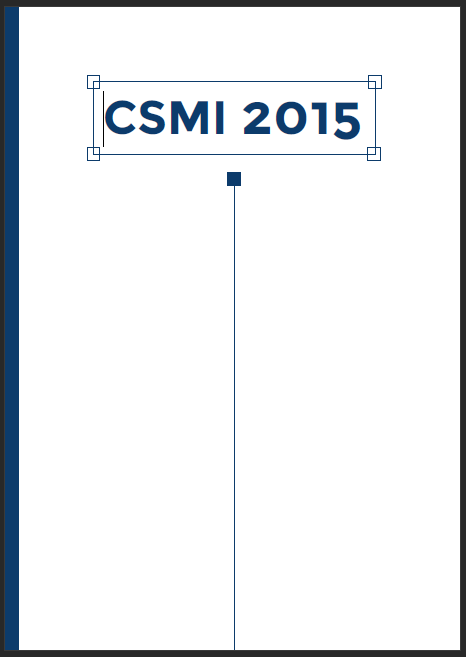
The Cooperative Science and Monitoring Initiative (CSMI) is a binational effort that coordinates monitoring and research efforts on each Great Lake over a five-year cycle to improve understanding of aquatic ecosystems. CSMI field sampling is guided by priorities identified in Lakewide Action and Management Plans (LaMPs) and the results inform the development of future management programs. This document highlights the work intended to be conducted during the 2015 CSMI field year on Lake Michigan.